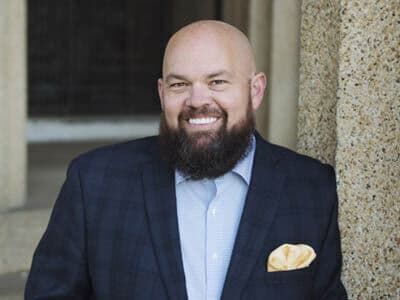State joins local response to hate group in Pennsylvania
Regional News

Audio By Carbonatix
10:28 PM on Wednesday, October 29
Christina Lengyel
(The Center Square) - Community in the Cumberland County borough of Mechanicsburg came out in force Wednesday evening to rally against hate groups following the distribution of Ku Klux Klan material at the town’s annual Halloween parade.
Following the rally, the Pennsylvania Human Relations Commission hosted a town hall, which filled Buhrig’s Gathering Place to capacity and left several onlookers listening in through an open door.
At the “No Hate in Our State” event, panelists acknowledged the fear and pain evoked when hate groups target a town for recruitment and answered questions about how to respond.
The first to speak was Dr. Alon Milwicki, an expert on American extremism and senior research analyst at the Southern Poverty Law Center. Milwicki provided background on the organization that distributed literature, the Women of the Ku Klux Klan.
Women of the Ku Klux Klan, Milwicki explained, represent the last vestiges of a "diminished" and decentralized group of extremists, capitalizing on the powerful and menacing reputation of the Klan, which thrived in the 1920s and 30s.
“It's an easy, simple and cheap way to stir shock anxiety and to remind us of a time we'd all like to keep in the past,” said Milwicki. “In fact, what we're seeing with these cowardly tactics is kind of the last-ditch scratching-up-the-walls effort at maintaining relevance.”
In a statement to CBS 21, the group’s commander denied handing the recruitment cards to children, but stood behind their message.
“We don’t back down because you disagree with our views,” she said. “The Women of the KKK lend a hand, look out for our neighbors, and stay true to what’s right. Strength isn’t just in numbers — it’s in loyalty, in courage, and in the quiet acts (invisible) that keep our community strong. We will be mingling in the crowd tonight as a Citizen of the Invisible Empire.”
Regardless of the relevance of the Women of the Ku Klux Klan, Milwicki cautioned that hate groups are alive and well in Pennsylvania. He called out neo-Nazi groups, anti-government militias, and well-known organizations like the Proud Boys and Patriot Front.
The Anti-Defamation League said the state has seen a rise in antisemitic and extremist vandalism, harassment, and violence over the last two years. The Goyim Defense League is among them, reportedly distributing white supremacist propaganda 33 times, including in the Squirrel Hill neighborhood, a well-known Jewish community.
It’s also home to the Tree of Life Synagogue, where in 2018 some 11 people were killed and six injured after a gunman opened fire during Shabbat service, marking the deadliest antisemitic attack in U.S. history.
Ann Van Dyke of Community Responders Network spent 32 years as a civil rights investigator for the commission. She said the mid-1980s marked an ongoing uptick in hate activity in the state. She noted that the groups tend to target communities “with a history of being homogeneous” and take advantage of anxiety about shifting demographics, economic insecurity, and alienation amongst young people to bolster their numbers.
“The last characteristic is the most negatively powerful, and that is the silence of good people,” said Van Dyke, who encouraged Mechanicsburg to keep up with discussions like this to prevent the group from taking root.
Sara Agerton, a career social worker and Mechanicsburg Borough Council member, said that the community needs to offer the sense of structure and belonging that troubled people find in supremacist groups. She also said they need to offer opportunities for people to have conversations with people who are different from them.
Another theme common to Agerton and Van Dyke’s advice on confronting the issue was addressing the serious mental health needs of the people who fall into hate. Agerton noted that many people who become extremists have histories of childhood trauma and abuse.
Van Dyke read from a letter written by ex-Aryan Nation security officer, David.
“My experience in the extreme right was that of being around my own, the untreated mentally ill,” wrote David. “PTSD, mostly from their childhoods, rampant sexual abuse from childhood, manic depression, drug abuse, alcoholism, paranoid schizophrenia, clinical depression — you name the mental illness, and it is there and generally untreated.”
Rev. Kathryn Johnston of Mechanicsburg Presbyterian Church and Rev. Bobby Jones of United Methodist Church in Enola spoke from the perspective of the faith communities. It was faith leaders who took the initiative in planning the night’s rally.
Jones said that since the KKK began as a Christian organization, there needed to be a Christian response to it.
“Most of the time we teach, we'll start with forgiveness, but we've never dealt with the real issues, and therefore we don't have true forgiveness,” said Jones. “And so I like to use it as an ending point, not a starting point. And in the midst of us starting to move towards forgiveness, let us also speak up for that justice. Let us also push towards that justice and let us also make sure that justice is something that's required for every human being.”
Johnston joked that she was being called to practice what she had recently preached in a sermon and urged community members to stay committed.
“Extreme ideologies are broken down over one-on-ones, over community and over connection,” said Johnston. “You can't just put up a post on Facebook and have it fix it. That would be amazing, but you cannot. It just requires the coffee shop. It requires doing things like this together. It requires hard work.”






